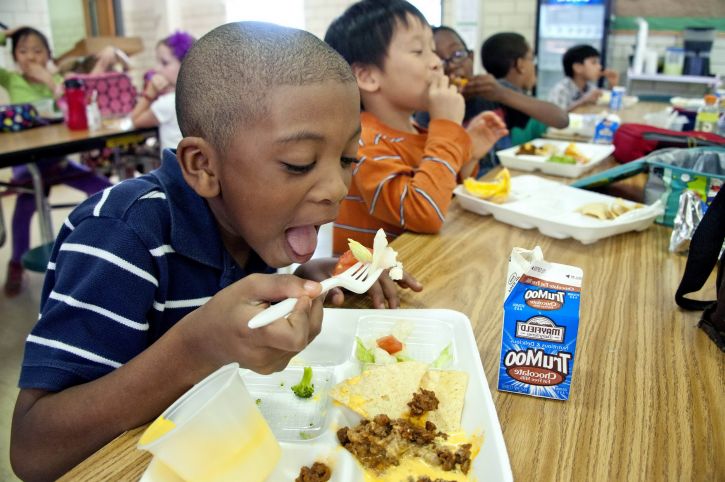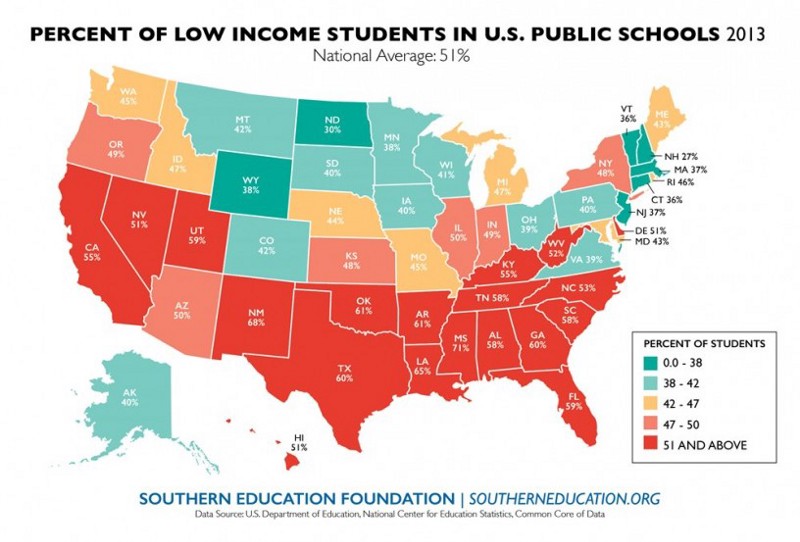Pennsylvania School Lunch Program Highlights a National Problem

By:
A lunch lady in Pennsylvania is speaking out after a new school policy required her to swap a student's hot lunch with a cheese sandwich earlier this month. Stacy Koltiska decided to quit her job in response to the "lunch shaming" policy, Fox 8 reported.
 Public Domain Image - public-domain-image.com
Public Domain Image - public-domain-image.com
Here's what happened.
Over the summer, Canon-McMillan School District enacted a policy that prevents students from getting a hot lunch if their parents have an outstanding balance of $25 or more. Koltiska, who worked for the district for two years, wrote about how the policy impacts students in a Facebook post that has more than 3,600 shares.
"The first week of school on Friday, I had to take a little first grade boys chicken and give him this 'cheese sandwich," Koltiska wrote. "I will never forget the look on his face and then his eyes welled up with tears." (The sandwich, she explained, was noting more than a piece of cheese between two slices of bread.)
Last week, the school district responded to Koltiska's post on Facebook. (The post appears to have been deleted.) A representative emphasized that the policy has "no impact on students who are eligible for the national school breakfast and lunch program" and that it was meant "to address accountability for deficit lunch accounts accrued by families with the ability to pay for their child’s school meals."
While the Canon-McMillan School District policy doesn't affect students in the federal lunch program, which provides low-income students with free or low-priced meals, school lunches remain a policy flash point at the federal level.
School lunch programs are being threatened nationwide. Some lawmakers want to to create exemptions to the federal program that could affect students across the country.
In April, "lawmakers began pushing to only allow schools this privilege if they have a majority of their students living at or near the poverty line — 60 percent. For a family of four, that would mean making less than $31,000 per year," ThinkProgress reported.
 Southern Education Foundation
Southern Education Foundation
A 2016 report from the Center on Budget and Policy Priorities found that a proposed measure to eliminate "community eligibility programs" would keep more than 7,000 schools, which serve about 3.4 million students, from offering free lunch programs. Zoe Neuberger, who authored the report, said that it would be irresponsible to restrict a federal problem that "enables schools to deliver, with minimal red tape, a critical benefit that can have lasting positive impacts for children in high-poverty neighborhoods."
She continued:
"Severely limiting eligibility for the option would impose burdens on schools that already struggle to educate children despite limited resources and the additional hurdles posed by operating in a high-poverty neighborhood. With community eligibility only in its second year of nationwide implementation, its benefits are just beginning to ripple through schools and low-income communities. Policymakers should leave this option alone and give thousands of schools and the children they serve a better chance to succeed."
